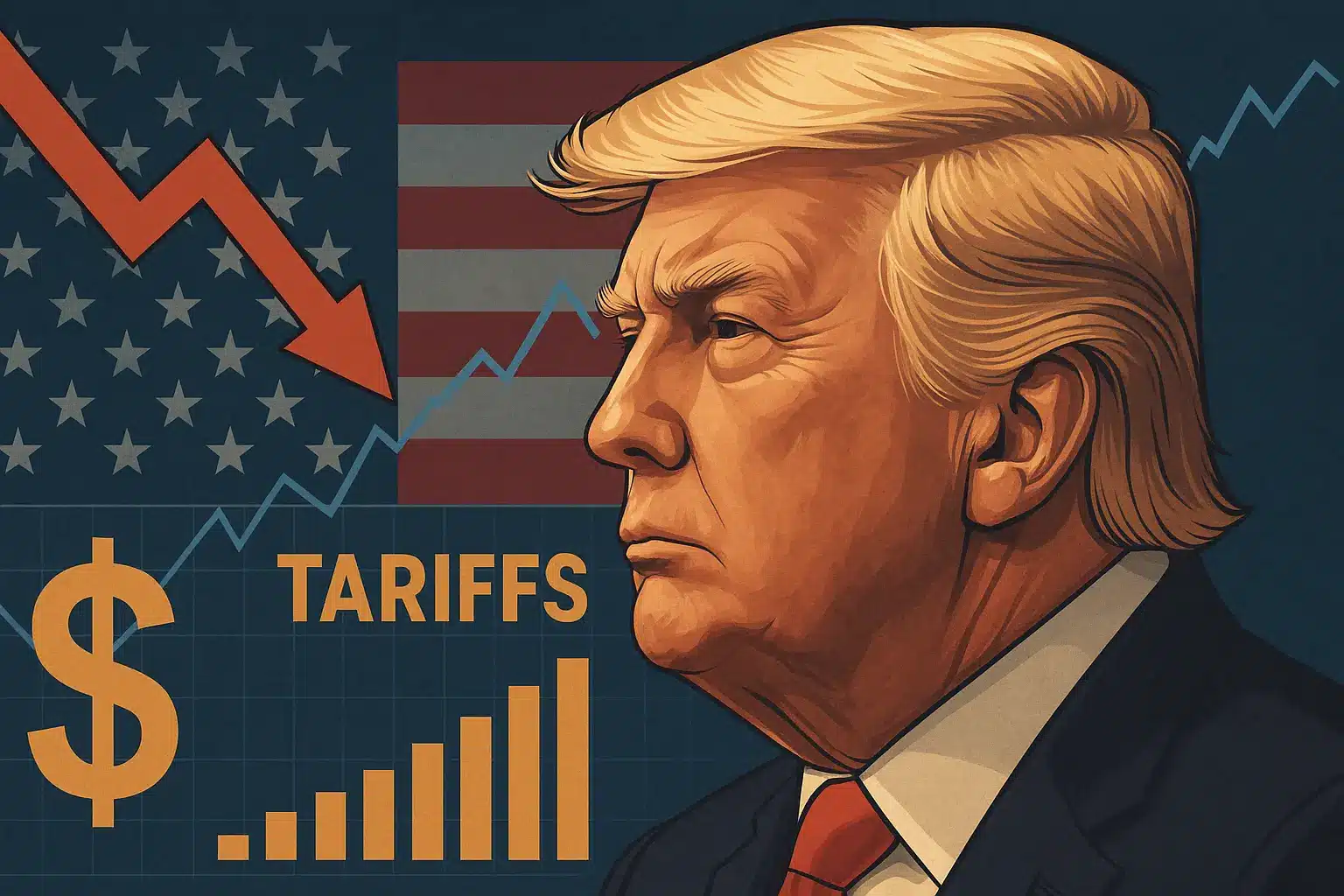In a dramatic escalation of political and economic tensions, President Donald Trump has openly challenged the Bureau of Labor Statistics (BLS), claiming that the agency overestimated job creation by 1.5 million jobs during the Biden administration. The accusations, made without substantive evidence, come after Trump removed the head of the BLS and endorsed alternative employment data produced by an economist from the Conservative Heritage Foundation. This alternative data draws on unpublished Census Bureau figures—difficult for independent experts to verify—raising significant concerns among economists, market analysts, and policymakers.
This dispute over official economic numbers coincides with a sweeping introduction of new tariffs on major trading partners, including a startling 39% tariff on Switzerland. While diplomatic overtures are already underway to soften these measures, the move has introduced new uncertainties for global markets, trade relations, and currency stability.
The combined effect of politicized economic data and aggressive trade policy presents a complex challenge for investors, global leaders, and everyday workers alike.
The Battle Over BLS Job Data
Accusations Without Transparency
President Trump’s central claim is that the BLS overstated employment gains during the previous administration. He has promoted alternative job statistics derived from unpublished Census Bureau data, which lack public accessibility and peer review. This creates a credibility gap—without transparency, independent validation is impossible.
For decades, the BLS has been regarded as a gold-standard institution for labor market statistics, valued for its apolitical methodology and rigorous data collection. Trump’s public dismissal of its figures signals a potential shift toward politically curated economic narratives.
The Risk of Politicizing Economic Data
Economists warn that politicizing core statistics undermines confidence not just in the data but in the policy decisions based on that data. Investors, businesses, and consumers rely on trustworthy figures to make informed decisions. If the accuracy of employment reports becomes suspect, market volatility could follow.
This erosion of trust is not just a theoretical problem—it affects Wall Street’s ability to assess economic health and can disrupt global trade partners’ confidence in the U.S. economy.
Tariffs: Economic Tool or Diplomatic Weapon?
The 39% Shock on Switzerland
Trump’s tariffs include an unusually high 39% duty on Swiss imports, a move that prompted Switzerland’s president to travel to Washington for direct negotiations. Other U.S. allies, including Japan and key European Union members, are also facing new tariff schedules.
These tariffs are being positioned as tools to protect American industries, but they also risk triggering retaliatory measures that could hurt exporters and raise consumer prices at home.
Global Market and Currency Reactions
Despite the trade tensions, the Dow Jones, NASDAQ, and S&P 500 have shown surprising resilience, holding near record highs. Analysts interpret this as a sign that investors are betting on long-term U.S. economic strength, even amid short-term trade disruptions.
However, the U.S. dollar has weakened, with other global currencies—particularly the Swiss franc and Japanese yen—strengthening in response. This shift reflects currency market adjustments to anticipated changes in global trade flows.
Economic Uncertainty Could Disrupt Hiring
Tariffs and shifting job data may reshape the employment market in 2025. Post your open roles now to secure the talent you need before conditions change.
👉 Post a Job Now →The Federal Reserve Factor
A Hawkish Nominee
Adding another layer of complexity, Trump’s nominee for the Federal Reserve Board is known for hawkish views on inflation. The nominee has signaled opposition to interest rate cuts, prioritizing price stability even if it risks slowing the economy in the short term.
This approach could strengthen the dollar over time, but it may also tighten credit conditions for businesses and consumers, complicating the economic picture already clouded by trade tensions and data disputes.
Diplomatic and Economic Interplay
Trade Policy as Geopolitical Messaging
Tariffs on allies are unusual, and their impact goes beyond economics. They send a geopolitical message that the U.S. is willing to challenge even long-standing partners to achieve domestic policy goals. This has forced countries like Switzerland into direct diplomacy to protect their trade advantages.
The interplay between economic policy and diplomacy in this case is a reminder that trade wars are also political wars—and the outcomes can reshape alliances.
Market Resilience: Why Stocks Haven’t Crashed
Investor Calculations
Despite tariff announcements and disputes over economic data, U.S. equities have not suffered major declines. Investors appear to be factoring in the possibility that these policies are negotiating tactics rather than permanent shifts in trade policy.
Some also believe that the American economy’s fundamentals remain strong, supported by corporate earnings growth, a tight labor market, and steady consumer spending—at least according to official BLS reports.
The Bigger Picture: Trust, Trade, and Transparency
The combination of contested labor data and aggressive tariffs is a stress test for the U.S. economic system. How the country navigates this moment will affect:
- Investor confidence in U.S. markets
- Trade relationships with strategic allies
- Public trust in government statistics
At stake is more than quarterly GDP—it’s the credibility of U.S. economic leadership on the world stage.
FAQs About Trump’s BLS Job Data Dispute and Tariff Impact 2025
What is Trump’s BLS Job Data Dispute about?
Trump claims the Bureau of Labor Statistics overstated job creation during the Biden administration by 1.5 million jobs, citing alternative data from unpublished Census Bureau sources.
Why is politicizing BLS data a concern?
Politicizing economic data risks undermining public and investor trust in official statistics, which are essential for market stability and informed policy-making.
How do Trump’s tariffs affect the global economy in 2025?
The tariffs impact trade relationships, currency valuations, and diplomatic ties, with countries like Switzerland seeking to negotiate lower rates to protect exports.
Why haven’t U.S. stock markets collapsed despite these events?
Investors may believe the policies are negotiable, or they have confidence in the underlying strength of the U.S. economy, corporate earnings, and consumer spending.




